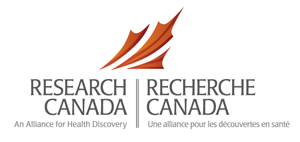
At a consultation with their neurologist, two members of an Alberta family affected by the genetic disorder facioscapulohumeral muscular systrophy (FSHD) learned about a clinical trial that tests a new leading edge treatment. Recognizing the importance of research to advance treatment, the two sisters, who have asked not to have their last name used, decided to participate in the clinical trial program.
“I was so excited, I jumped all over it,” says Lynn. “FSHD affects everything from daily activities, to work choices, marriage, planning a family, it is a huge part of who you are.”
FSHD is an inherited neuromuscular disorder that causes weakness of the muscles, most often, in the face, shoulder blades, and upper arms. It can progress to cause widespread muscle weakness, as well as loss of hearing. Currently, there is no standard of care treatment for this disease.
“I feel it is my responsibility to contribute as a patient to make progress possible,” says Heather.
Dr. Lawrence Korngut, MD, an associate professor in the departments of Clinical Neurosciences and Community Health Sciences and member of the Hotchkiss Brain Institute at the Cumming School of Medicine (CSM), is a global leader in researching new treatments for neuromuscular conditions. He and his team, clinical trial co-ordinators Janet Petrillo and Jose Martinez, were recognized as having the highest recruitment of participants worldwide to the FSHD clinical trial program, which was conducted at close to 20 sites in North America and Europe.
Bringing clinical trial opportunities to Calgary
“As a physician and researcher, I was very happy to be able to offer a cutting-edge treatment option to my patients,” says Korngut, who is also director of the Calgary ALS and Motor Neuron Disease Clinic. “We need advances in these rare diseases and our team is dedicated to bringing clinical trial opportunities to our Calgary patients.”
Both sisters appreciated the care they received throughout their clinical trial participation. “I was very impressed with how supportive the entire team was,” says Heather. “The appointments can take a lot of time, and the team worked hard to make it as easy as possible for me to participate; often, booking appointments around my work schedule.”
“It was a positive experience. The staff are wonderful people. Jose was incredible, he made me feel comfortable at all times,” says Lynn. “A big thank you to Dr. Korngut for making this possible.”
Due to the success of the trials Heather and Lynn participated in, an extension phase has now been offered that will allow them continued opportunities to participate in the studies.
Clinical trials underway are looking for participants
For those considering participation in a clinical trial, Heather has the following advice: “Talk to the team, if you have concerns or reservations, they are more than happy to inform you and answer your questions. There was no pressure, and I never felt that anyone would be disappointed if I had decided not to participate.”
This article was originally published on May 15, 2019 by Sabine Moritz, University of Calgary.
